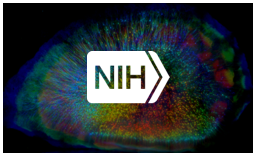
Neuroethics
What is Neuroethics?
Neuroethics is a multi-disciplinary field that studies the legal, ethical, and societal implications of neuroscience as our understanding of the brain advances. Neuroethics both addresses ethical questions of neuroscience research and guides the application of this research, including the developments of novel neurotechnology, monitoring brain processes, brain function and ability, and brain enhancement. The field works towards improving responsible neuroscience research, as well as informing ideal clinical practice.
Take a look at the videos below to learn a little bit more about neuroethics and why it is gaining so much traction today:
Neuroethics Explained
Neuroethics and the BRAIN Initiative
Ethics & Society: Neuroethics
What are the pathways to pursuing a career in neuroethics?
“Neuroethicists can work with neuroscientists to identify and address ethical questions that arise in neuroscience research. As such, neuroethics can empower neuroscience research and help inform how studies are designed, conducted, interpreted, and applied.” — National Institute of Neurological Disorders and Stroke
Consultant
Careers in neuro ethics can involve counseling private firms on navigating ethical issues when they take their product to market. A neuroethics consultant may offer suggestions on neuroscience background, ethical risk management, judgment, and more. They could operate on their own as a “freelancer” or an employee of a consultancy.
Academia & Professorship
Another pathway is to pursue a professorship that would allow you to research and write on neuroethics issues. Professors writing on neuroethics can work in many different fields, including bioethics, law, philosophy, and science and technology studies (STS)
Industry Researcher
One pathway is to pursue a primary career in neuroscience/neurotechnology, but do so with a willingness to address ethical challenges and collaborate with ELSI experts. You would be able to advise your team on best practices in neuroethics, and apply your foundations to developments in neuroscience & technology.
Healthcare, Government, & Policy
Some pursue neuroethics by working in and with government agencies, as advisors, analysts, or researchers. Neuroethics may also be integrated into work by patient advocates, policy analysts, and administrative staff in health fields.
Education in Neuroethics:
At present you cannot obtain a degree in “neuroethics”. That is, there is no dedicated Masters of Neuroethics program, and no school that offers an undergraduate major called neuroethics. There is a Certificate in Neuroethics (see below), and many online resources for self-learning. But many areas of study can help one gain a solid background in neuroethics, from neuroscience & psychology to ethics, philosophy, law and anthropology. Because the career options are so varied, there is no single best educational and training path to recommend. Some working in neuroethics have an MD, PhD, JD, or Masters in Bioethics (MBE) degree — and some have more than one of these. The degrees listed below may be offered as general programs at your institution – to pursue neuroethics, you can choose to specialize your research or even design your own major. For example, if you pursue a graduate degree in neuroscience you might focus your work on the ethical implications of neuroscience developments. While typical PhDs in neuroscience may be more science-focused, you can design your specific research to fit your interests in neuroethics.
- Undergraduate: At the undergraduate level, those interested in neuroethics may want to gain exposure to neuroscience, psychology, cognitive science, bioethics, sociology, philosophy, and related fields.
- Graduate: At the graduate level, one could pursue Masters or Doctoral training in ethics (with specialty in bioethics, neuroethics, health ethics), neuroscience (with a goal of working in neuroscience and society), law (with a focus on the intersection between law, health, and neuroscience).
Resources and programs related to neuroethics:

The UPenn Center for Neuroscience & Society
The Center for Neuroscience and Society offers various resources to students interested in opportunities, courses, and events related to neuroscience & society and neuroethics.




